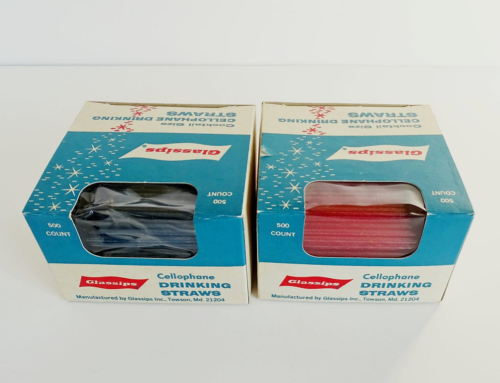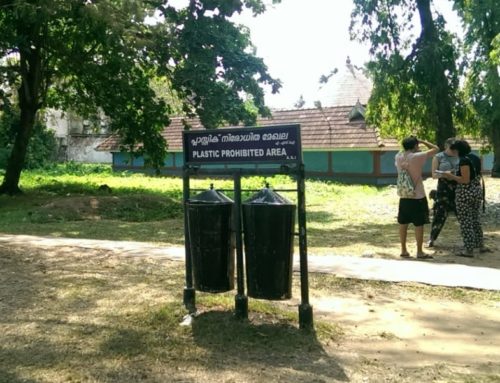by George Cole
7 minute read
At home in the UK, I’m used to the council regularly collecting my household waste from the street outside my door. Missing a waste collection is a little inconvenient. You have to keep the waste until the next collection day, by which time you might have more waste than you can fit in your boxes and bins.
But what if you never knew when the waste truck might come, had to listen for it passing along the main road some distance away, and run with your waste in the hope of catching it? This is the situation I discovered when I started a three month sabbatical working in the slums of Kampala, where Awamu and Tusitukirewamu Women’s Group (TWG) invited me to help design a community-led recycling programme.
Ditching waste
It is estimated that between half and two thirds of the city’s 1.5 million population lives in slums, where they have virtually no access to waste management services. Following the dirt paths between self-constructed housing and pit latrines that empty into open drains, you see litter and waste accumulating in all corners of these neighbourhoods and woven deep into the soil.
I was shocked to find that waste is a major contributor to ill health. Waste blocks drainage channels, creating stagnant water and leading to the spread of typhoid, malaria and other waterborne diseases. During the rainy season these blockages cause flooding, which in turn leads to incidents of drowning. Waste that isn’t thrown into the streets or drains is often burnt indiscriminately – a major source of air pollution that contributes to respiratory disease in one of the world’s most overcrowded and congested cities.
In Kampala, I found death and illness were disturbingly commonplace; in just the few short months of my stay, my colleagues attended numerous funerals, had family members rushed to hospital, or fell ill with conditions such as typhoid. Many people take HIV treatments that have strong side effects that leave them physically weak, and few have the money to even pay transport to a hospital to seek medical help, let alone to meet the costs of treatment.
I was appalled that, despite the harm being done by waste, little is being done to address it. The City Authority is evidently struggling to meet the population’s waste management needs. Rough calculations reveal that as little as 15% of household waste generated in Kampala is managed by the City and its private contractors.
In areas pretty much abandoned by local government, with negligible public services, it is the people who are affected by poor waste management who have the greatest incentive to act. I worked with a women’s group called MAWDA on waste prevention, with the aim of tackling part of the problem at source. However, removing the recyclable material, which makes up 90% of waste in slums, could have a considerable impact on the amount dumped and burnt. I therefore welcomed the chance to see what could be achieved by leadership from a women’s group like TWG, with established expertise in behaviour change and a track record of supporting the vulnerable, creating income generation opportunities, and planning development programmes for community improvement.
A wealth of ideas
The waste stream is comprised of relatively few products, making recycling simple. There will undoubtedly be issues to navigate along the way but these are not insurmountable and we have already found some innovative solutions. Organic material for example, which constitutes 75% of the waste stream in slums, can be recycled into a substitute for charcoal, the price of which has risen sharply due to the alarming rate of deforestation.
The group was clear from the start that they wanted to pay householders for the waste collected – an approach they called ‘waste to wealth’. The motivation was partly practical: as there is no real enforcement against waste dumping and burning and the environmental benefits alone are unlikely to be sufficient to persuade householders to engage.
Families in the slums on average live on barely $1 per day, finding work and feeding their family is their number one priority. Payment will also help ensure the materials collected meet the requirements of the service in terms of cleanliness and sorting. But at a cultural level, payment demonstrates the value of materials currently disposed of as waste and helps change how waste is perceived: from being a problem to being a valuable resource. The change should be systemic, from citizens reacting to benefit from the material value of their own waste, to the private sector competing to collect and recycle it.

Heavy rains and waste-blocked water courses lead to severe annual flooding in the slums. Photo courtesy of Tusitukirewamu.
Commodity prices are high relative to local labour costs, which enables householders to be paid a meaningful amount while the recycling scheme turns a considerable profit – potentially in the order of half a million US dollars for the urban area where we are basing operations. This is a considerable sum in an area where the average salary, for those fortunate enough to have a job, is less than $500 per annum, and the money can be reinvested in other programmes for the benefit of the community. The project requires capital funding for waste collection and processing infrastructure, community engagement activities and training. However, it should present an attractive investment. After all, financial sustainability and legacy are key themes for the international development community, particularly following the recent cut in the US AID budget.
Roots and branches
Even once the local recycling market has been developed, community groups seem likely to be well placed to compete within it. They can leverage their reputation and existing community networks to engage residents and organise work groups. Their dedication to their work does not go unnoticed. One day I met TWG Programme Director Florence Masuliya rushing out the door, on the deadline for a major funding opportunity and on very little sleep, to support a victim of gender-based violence. After several hours at a local women’s centre, Florence returned to the office and worked through the night until the proposal was submitted.
Their hard-won reputation gives TWG influence where government officials and outsiders are treated with suspicion. Grassroots organisations will gain even more support if they are generating local employment. I would not suggest that community groups act alone, but TWG plans to use a Public-Private Partnership model to work with government and industry, while retaining the benefits of the scheme for the community.
Once the recycling programme has been demonstrated locally, we plan to establish other branches, working with community groups throughout Kampala. But many other countries face the same issues of poor waste management and could adopt similar approaches. I have seen that community groups such as TWG are incredibly effective at mobilising community action and delivering change programmes.
However, these capabilities are rarely twinned with expertise on waste and recycling needed to support these projects. Local groups and funders can increase their ability to develop self-sustaining recycling programmes by seeking technical input from consultancies like Eunomia, or charities like WasteAid UK. With a small amount of seed funding and the right direction, big benefits, both environmental and economic, can be reaped.

Waste fields: waste pervades the slums, leaving few places for children to play that aren’t strewn with garbage. Photo courtesy of Lou Taylor.
If you would like to support these organisations, my partner and I have started a fundraiser page for Awamu, where you can see more photos and read her experience of working in Kampala. Awamu supports TWG and other women’s groups in Kampala slums, and sells beautiful clothes and other products made by women in these communities. I’d like to thank everyone at Awamu, TWG and MAWDA for making us both so welcome, and for giving us the chance to take part in their inspiring work – and Eunomia for giving me the time away to do it.







Waste to wealth is quite a practical option; i am already working in this area since 2002